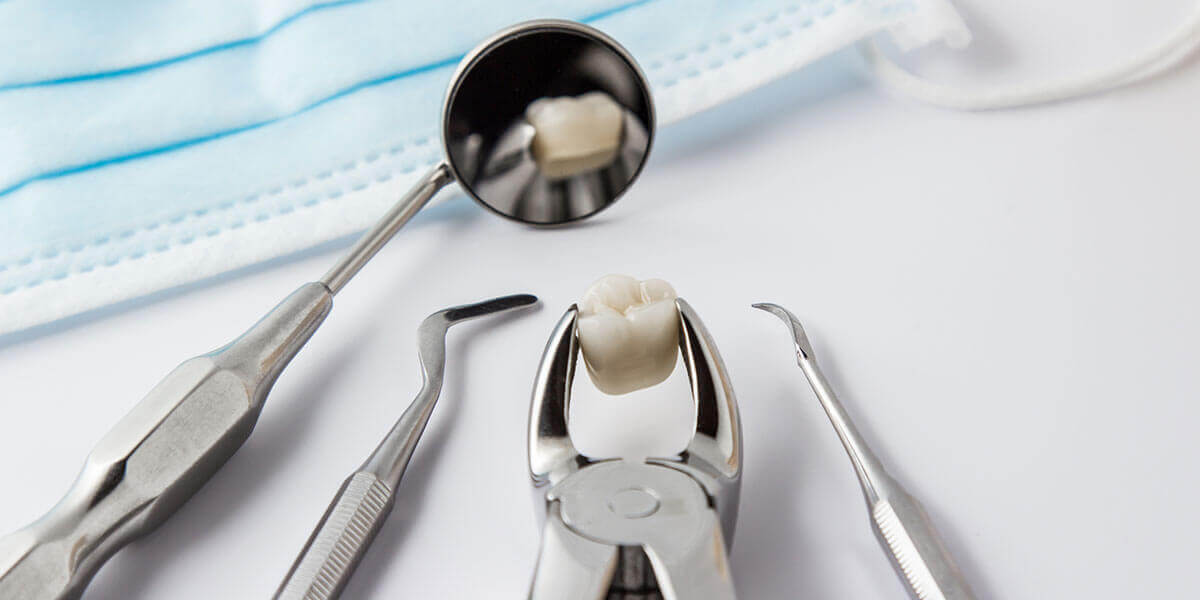Dental Extractions in New Jersey
Montclair Perio & Implant Specialists provides dental extraction services in Montclair, NJ. Call 973-744-1555 to learn more and schedule your appointment.

It’s always our goal to help you keep your natural teeth, but sometimes a tooth must be extracted in order to maintain or restore your dental health. Some circumstances in which a tooth extraction may be needed include:
- A tooth is too decayed or damaged to repair with a crown
- Gum disease has caused a tooth to become loose and we determine that it cannot be saved
- An infection that cannot be treated with root canal therapy
Unless you require extractions for wisdom teeth or orthodontic treatment, we recommend replacing the extracted tooth with a dental implant to restore bite strength, function, and appearance.
What Happens During a Tooth Extraction
A tooth that can not be saved with restorative materials may need to be removed. Before removing your tooth, the area will be numbed with anesthesia. The tooth is then loosened using a special dental instrument known as an elevator. After it is loosened from the socket, it is gently removed by a forcep, a dental instrument commonly used in dental extractions. Stitches may be necessary after the removal of a tooth.
What to Expect After Your Tooth Extraction
Once your tooth extraction is complete, we will provide you with comprehensive aftercare instructions. As the anesthetic wears off, any discomfort will be avoided or minimized with proper medication prescribed by Dr. Hartnett.
Frequently Asked Questions About Tooth Extractions
Is a tooth extraction painful?
Your tooth and the area around it will be numbed with local anesthetic before we begin any work, which means you won’t feel any pain during your extraction, although you may feel sensations of movement and pressure. After the local anesthesia wears off, you will have medications to control tenderness at the extraction site.
How soon after a tooth extraction can I eat?
We suggest waiting until your local anesthesia has worn off before eating; it’s easy to bite down hard on your cheek or your tongue when your mouth is numb, potentially causing serious soft tissue injury. For the initial postoperative period, limit yourself to soft foods and liquid. Then slowly begin to incorporate more foods that require chewing into your diet, Dr. Hartnett and her staff will give you explicit postoperative instructions.
Do you need an implant after an extraction?
A dental implant is certainly the best option to replace a tooth that has been extracted, but by no means is it the only solution. You may also consider a dental bridge or, if you have a number of adjacent teeth that are missing, a denture. It’s important to replace the tooth, not just for the appearance of your smile, but for your oral health.
What happens if you don’t replace an extracted tooth?
If you do not replace a tooth that has been extracted, your other teeth may start to shift into the newly opened space. Over time, the area of jawbone that once supported the extracted tooth may start to break down, further compromising your oral health.
Call 973-744-1555 to schedule your appointment.
